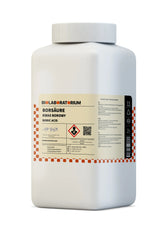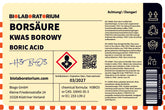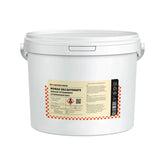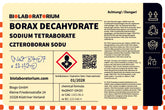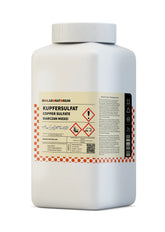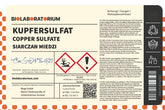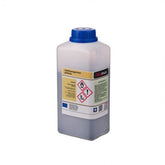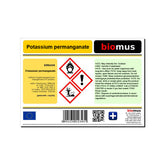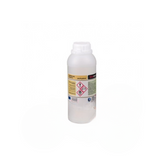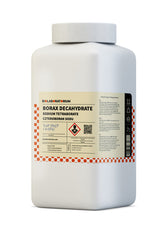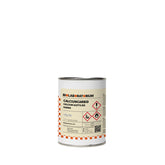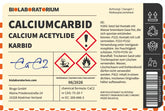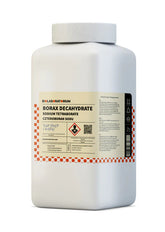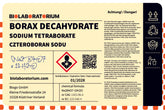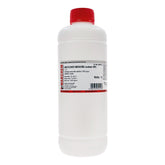Thiourea – Versatile Applications and Important Safety Aspects
Thiourea, also known as sulfur urea, is a chemical compound with the molecular formula CS(NH2)2. This sulfur-containing molecule has a variety of interesting properties and is used in numerous industrial sectors. In this blog post, we will take an in-depth look at thiourea – from its physical and chemical properties to its diverse applications and the associated safety aspects.
Properties of Thiourea
Thiourea is a crystalline, colorless solid that is well soluble in water. Compared to its structural analog urea (CO(NH2)2), thiourea exhibits some special characteristics:
- Higher Melting Point: Thiourea melts at 182°C, while urea melts at 133°C. This is due to the stronger hydrogen bonds in the thiourea crystal lattice.
- Higher Polarity: The sulfur atom in thiourea is more electropositive than the oxygen atom in urea, leading to an overall higher polarity of the molecule.
- Nucleophilicity: Due to the higher polarity and the presence of the sulfur atom, thiourea is a stronger nucleophile than urea.
These properties make thiourea a versatile starting material in organic synthesis and industrial processes.
Industrial Applications of Thiourea
Thiourea is used in numerous industrial sectors. Some of the most important areas of application are:
Chemical Synthesis
Thiourea serves as a starting material for the production of a wide range of organic compounds. For example, it can be reacted in condensation reactions with aldehydes or ketones to form thiazole derivatives, which in turn serve as intermediates for pharmaceutical active ingredients.
Galvanotechnik
In electroplating, thiourea is used as a complexing agent to deposit metals such as copper, nickel, or chromium. Complex formation facilitates the deposition of these metals and improves the quality of coatings.
Textile finishing
Thiourea is used in textile finishing, for example as a component of dye baths or finishing agents. Here, the ability of thiourea to bind dyes and thus enable permanent coloring is utilized.
Agriculture
In agriculture, thiourea is used as a fertilizer. Through slow hydrolysis in the soil, it releases sulfur in a plant-available form, thus improving the sulfur supply of crops.
Medicine and pharmacy
In medicine and pharmacy, thiourea serves as a starting material for the production of active pharmaceutical ingredients, for example for the treatment of hyperthyroidism. It is also used in disinfectants and cosmetics.
Further applications
Furthermore, thiourea is also used in photochemistry, as a corrosion inhibitor, as a vulcanization accelerator in the rubber industry, and as a flame retardant.
Safety aspects when using thiourea
As with all chemical substances, certain safety aspects must be observed with thiourea:
Health hazards
Thiourea in pure form is toxic if swallowed and can cause skin and eye irritation. Prolonged exposure can lead to thyroid damage. Therefore, appropriate protective equipment such as gloves, safety glasses, and respiratory protection is required when handling thiourea.
Fire hazard
Thiourea itself is not flammable, but it can cause fires and explosions when in contact with strong oxidizing agents. Therefore, thiourea must be stored separately from oxidizing agents.
Environmental aspects
Thiourea is hazardous to water and can lead to oxygen deficiency and damage to aquatic life in water bodies. Therefore, special precautions must be taken during disposal and transport.
Overall, handling thiourea requires a high level of safety awareness and compliance with applicable regulations due to its properties and applications. Only in this way can health and environmental risks be minimized.
Conclusion
Thiourea is a versatile chemical compound with interesting properties. From organic synthesis to electroplating and from agriculture to medicine – thiourea finds applications in numerous industries. However, when handling it, relevant safety aspects must always be observed to avoid health and environmental risks. Overall, thiourea is an important industrial raw material whose significance is expected to continue growing in the future.

